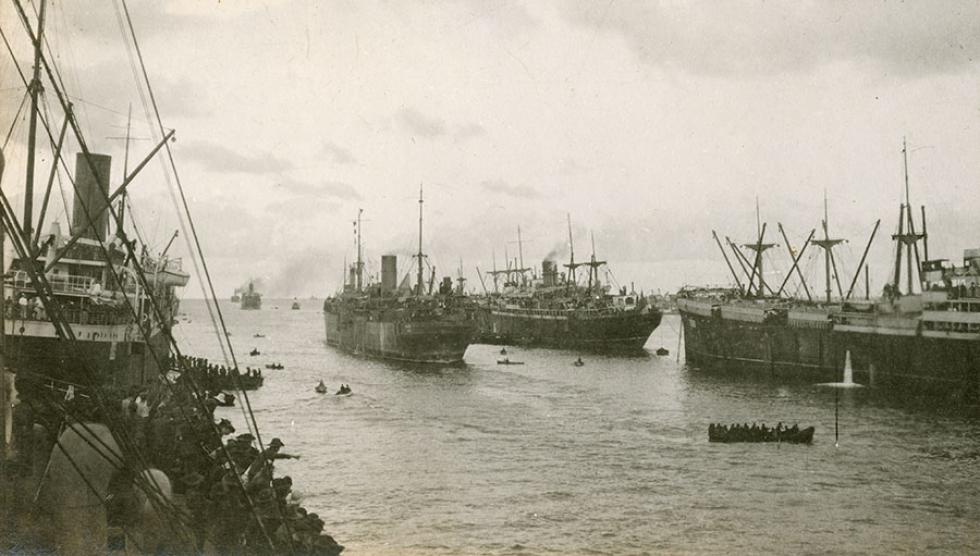Family historians have long enjoyed the delights of researching military service records in the National Archives. The opening of Repatriation Department files for First World War veterans has also revealed the lifelong impact of war on returnees and their families. However, another rich source for wartime stories is often overlooked: troopship records.
More than 330,000 Australians sailed to war over 1914 to 1918, including soldiers, nurses, civilian munitions workers and Red Cross volunteers. Most departed and returned aboard troopships hired by the Australian Government.
Hired Military Australian Transports (HMAT) were former civilian passenger liners, with names ranging from Abbasich to Zealandic. As troopships, they were allocated military serials from A1 to A74. These transports typically spent six weeks sailing between Australia and Europe, the Middle East or North America – plenty of time for mischief or misadventure.
Troopship records are preserved in Series MT1384/1, which can be ordered online or viewed in our Melbourne research centre. Some files simply comprise lists of personnel aboard and the routines that ordered their journey. Others, though, offer unique insights into wartime life.
A slice of wartime life
For instance, in 1915 the Orient Steam Navigation Company steamship Orsova became HMAT A67. Records of its voyages convey a sense of life aboard, including amusements, church services and standing orders. Alongside promotions and desertions, there are lists of soldiers hospitalised for injuries, infections or venereal disease.
Even more intriguing stories emerged when Australian Imperial Force passengers broke the rules.
In 1919, for example, Gunner Thomas Sibbritt of the 6th Field Artillery Battalion was returning home on Orsova's first post-war voyage. On 25 January he was docked two days' pay for failing to act as a mess orderly. Hearing the sentence, Sibbritt forfeited another 10 days' pay for threatening his accuser, Lance Corporal Watson Horne.
'You'll swing for this', Sibbritt swore. 'I'll catch you when we get off the boat'. While his offence and sentence were recorded in Sibbritt's personal service record, the circumstances and witness testimonies can only be found in Orsova's voyage file.
More seriously, Acting Sergeant Edward Newell of the 9th Battalion was court-martialled aboard the same ship on 30 January 1919. When ordered to duty by a Regimental Sergeant Major, Newell allegedly replied 'go and get ******'.
Although he pleaded not guilty, claiming that the profanity was aimed at a comrade who gave him a 'dig in the ribs', Newell was nevertheless reduced to the ranks and lost 4 days’ pay. The Orsova voyage file is also the only place where full records of this court martial survive.
What other unique stories might you uncover in your ancestors’ troopship files? Start browsing the records to find out.






